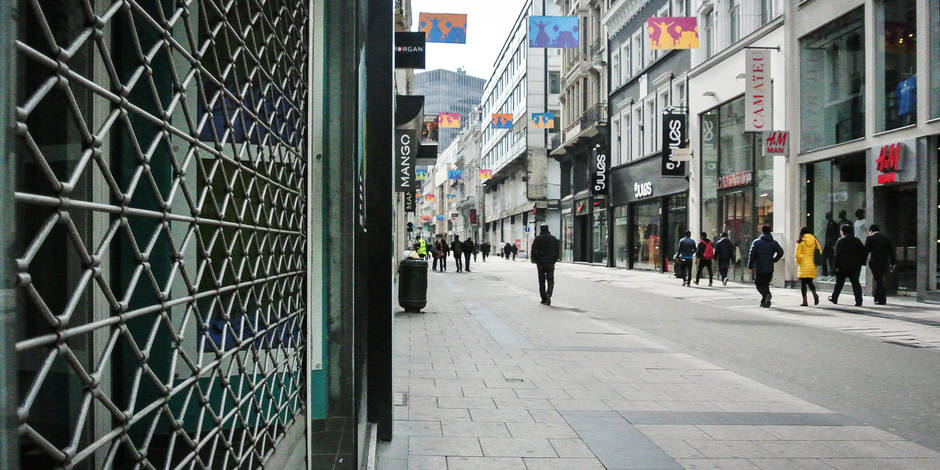The chance of a recession hitting Belgium in the coming months is becoming increasingly likely, according to Voka, the Flemish network of enterprises, citing the increasing supply problems and rising costs of energy, raw materials and wages.
The Russian invasion of Ukraine continues to further exacerbate the already rising costs of energy and is perpetuating the shortage in raw material and food supplies and increased wages due to wage indexation, a lethal combination that could put a brake on the Belgian economic recovery, Voka warned. "The chance of a recession in the coming months is very real," it said in a recent statement.
"This crisis will have a major impact on the economy, and this comes after the Covid-19 crisis that has not yet been fully overcome. We run the risk of ending up in a recession," Hans Maertens, managing director of Voka, said.
Belgium's recession history
A recession is a significant decline in the growth of economic activity, which is measured by the trend in the growth of a country's gross domestic product (GDP). When this falls below the long-term average — in Belgium this has happened for two or more consecutive quarters — a national recession is declared.
According to Voka, an oil price increase of more than 50% over a period of six months has always been followed by a recession, and that line was crossed last week.
In 2020, as a result of the coronavirus crisis and the first lockdowns, Belgium’s GDP in volume saw the worst decline since the end of World War II, one that was “more than three times greater than that observed during the Great Recession (-2%) of 2009."
"Recessions, of course, come in different shapes and sizes. In the first half of 2020, the Belgian economy was hit by a 14% blow. This time, it will certainly not be as severe," Voka stated, due to the "favourable starting point" after last year's strong recovery.
Urgent action needed
At the start of the year, 2022 was estimated to be a reasonably good economic year for Belgium. Both the National Bank and the European Commission had predicted that the Belgian economy was on course for a 2.6% growth this year. Now, most organisations have already revised their estimates downwards.
A recent Voka survey conducted among 600 Flemish companies found that 86% of the companies indicate that their supplies are disrupted. Input costs are now 41% higher than six months ago, and companies expect these to rise by another 33% in the coming months, which will affect the prices paid by consumers.
Related News
- Food inflation hits highest levels since 1983 at 4.63%
- Government launches task force to avoid empty shelves in supermarkets
- Belgian consumer confidence collapses in March
Companies expect their selling prices to rise by another 10% on average in the coming months. In the past six months, their sales prices already rose by an average of 12.5%.
Although Voka believes the recession "should still be mild, both in terms of duration and amplitude," it also stressed it depends on the course of the conflict. The organisation's Bart Van Craeynest stressed that the most important step now is to "prevent this crisis from doing structural damage to our economy."
As an employers' lobbying group, it has called on federal social partners and the government to start discussions regarding measures to "curb wage increases and the inflationary spiral."

